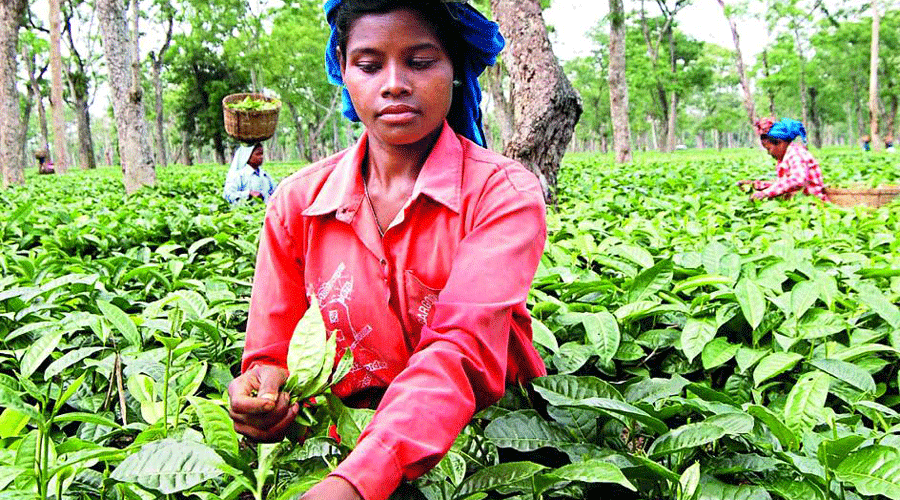The Mamata Banerjee government has issued two notifications which will pave the way for the regularisation of a majority of 43,000 small tea plantations which came up illegally on private and government land in north Bengal between 2001 and 2017.
“We thank the chief minister and the government for addressing a longstanding demand. The regularisation of small plantations will help the growers avail themselves of assistance and benefits under various central and state schemes,” said Bijoygopal Chakraborty, the president of the Confederation of Indian Small Tea Growers Associations (CISTA).
Anyone having tea bushes on land not exceeding 10.12 hectares (25 acres) is a small grower. The small growers contribute around 62 per cent of the state’s total tea production. Altogether, around 15 lakh people are directly and indirectly associated with the small tea sector.
Small tea plantations had started mushrooming in the districts of North Dinajpur, Jalpaiguri, Darjeeling, and Cooch Behar around 25 years ago. As most of these plantations came up on agricultural land, the Left Front government announced that only those set up by June 30, 2001, would be considered legal.
However, as the demand for tea increased, more small plantations started coming up. Around 43,000 small tea plantations come up illegally on private plots and even on patches of unused government land after the cutoff date.
“As all these plantations were considered unauthorised because of the notification of 2001, we had urged the state government to take an initiative to regularise these gardens," Chakraborty said.
On April 5, Smaraki Mahapatra, the principal secretary of the state land and land reforms department, issued two notifications.
According to one notification, anybody who set up a tea plantation on private land between June 30, 2001, and November 7, 2017, will have to pay Rs 25,000 per hectare for the regularisation.
The other notification says small tea plantations on government land can be regularised through the payment of a "salami" of Rs 50,000 per hectare, along with an annual rent which will be fixed by the department. These growers will get the land on lease for a period of 30 years, in the same manner in which the state leases out land to tea estates.
The CISTA president said: “Considering the new cut-off date (November 7, 2017), we can say that almost all small tea plantations will become legal."










